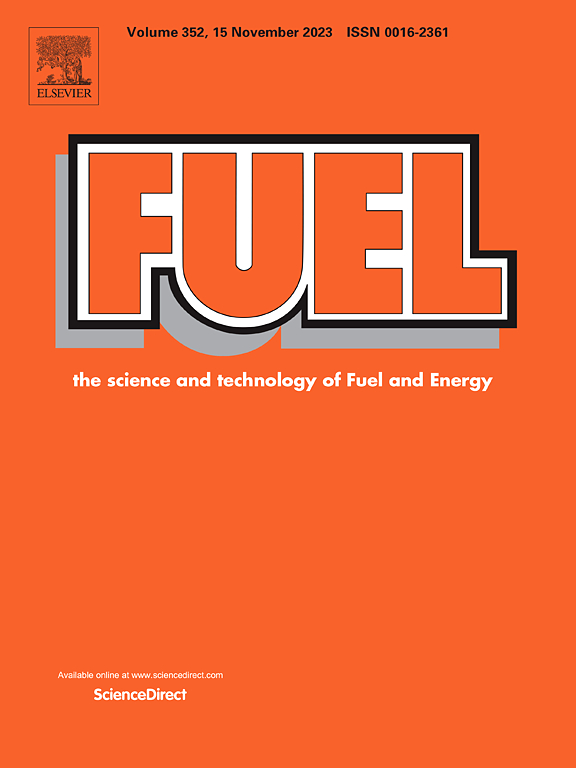Low-temperature co-gasification of rice husks and waste tires as an alternative fuel in the cement industry: Investigation of synergistic mechanisms and their targeted optimization
IF 7.5
1区 工程技术
Q2 ENERGY & FUELS
引用次数: 0
Abstract
To support low-carbon transformation in the cement industry, this study investigated the low-temperature co-gasification of rice husks (RH) and waste tires (WT) as an alternative fuel. Gasification experiments in a tubular furnace examined the effects of varying RH to WT mass ratios and excess air number (α), while molecular dynamics simulation explored the reaction mechanisms of their main components, cellulose (CE) and styrene-butadiene rubber (SBR). The results showed that co-gasification exhibits both inhibitory and synergistic effects: WT initially suppresses RH decomposition but later promotes the release of combustibles. Although gas yield decreased, the lower heating value (LHV) of gas improved significantly, with the highest synergistic effect (51.45 %) at α = 0.20 and a mass ratio of RH to WT of 3:7. Co-gasification also reduced Si and S in the solid product, thereby reducing the risk of clinker skinning. CE provided hydrogen and hydrocarbon radicals that contribute to the generation of combustible gases. SBR provided aromatics that helped reduce NOx emissions. Precise modulation of syngas composition, calorific value, and carbon distribution in gasification products was achieved through regulation of the RH-to-WT ratio and controlled gasification temperatures. Thus enabling targeted implementation of low-temperature co-gasification as an alternative energy solution in cement manufacturing systems.

稻壳和废轮胎低温共气化作为水泥工业替代燃料:协同机制的研究及其针对性优化
为了支持水泥行业的低碳转型,本研究研究了稻壳(RH)和废轮胎(WT)的低温共气化作为替代燃料。管式炉气化实验考察了RH / WT质量比和过量空气数(α)对气化反应的影响,分子动力学模拟研究了其主要组分纤维素(CE)和丁苯橡胶(SBR)的反应机理。结果表明,共气化具有抑制和协同作用:WT先抑制RH分解,后促进可燃物的释放。虽然产气量降低,但气体的低热值(LHV)显著提高,在α = 0.20、RH / WT质量比为3:7时,协同效应最高,达到51.45%。共气化还降低了固体产物中的Si和S,从而降低了熟料剥皮的风险。CE提供氢和碳氢化合物自由基,有助于产生可燃气体。SBR提供的芳烃有助于减少氮氧化物排放。通过调节rh - wt比和控制气化温度,实现了合成气成分、热值和气化产物碳分布的精确调节。因此,能够有针对性地实施低温共气化作为水泥制造系统的替代能源解决方案。
本文章由计算机程序翻译,如有差异,请以英文原文为准。
求助全文
约1分钟内获得全文
求助全文
来源期刊

Fuel
工程技术-工程:化工
CiteScore
12.80
自引率
20.30%
发文量
3506
审稿时长
64 days
期刊介绍:
The exploration of energy sources remains a critical matter of study. For the past nine decades, fuel has consistently held the forefront in primary research efforts within the field of energy science. This area of investigation encompasses a wide range of subjects, with a particular emphasis on emerging concerns like environmental factors and pollution.
 求助内容:
求助内容: 应助结果提醒方式:
应助结果提醒方式:


